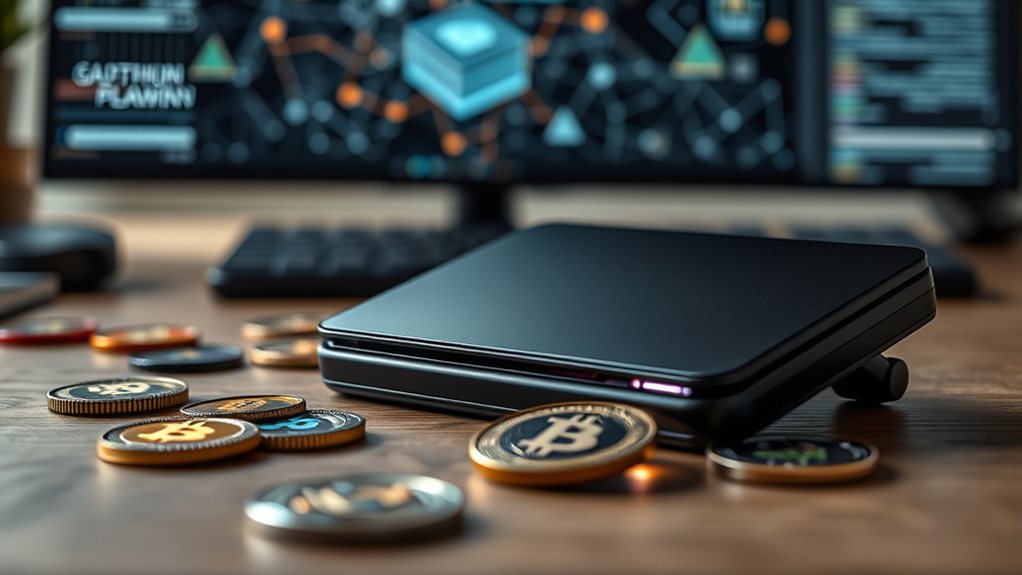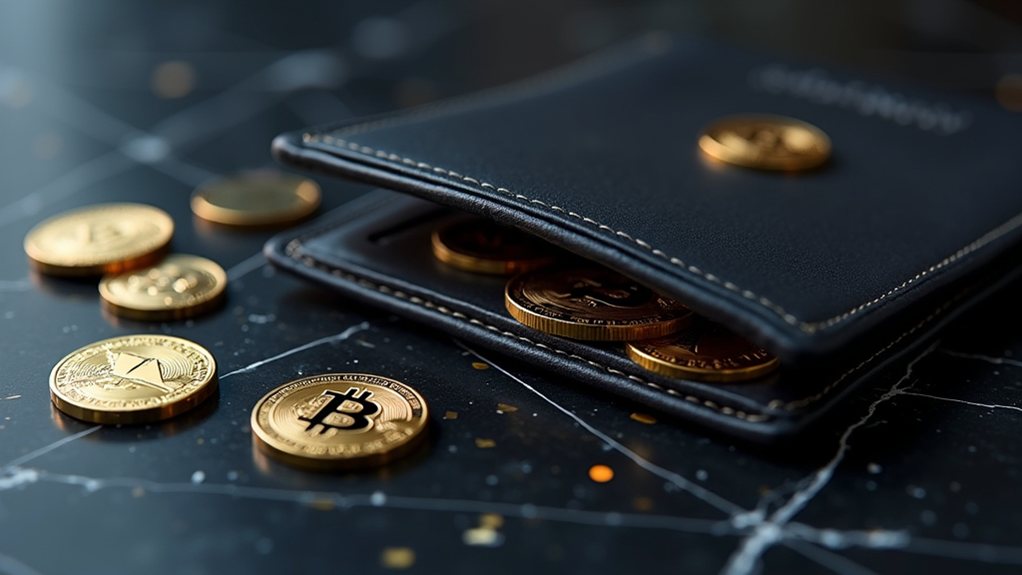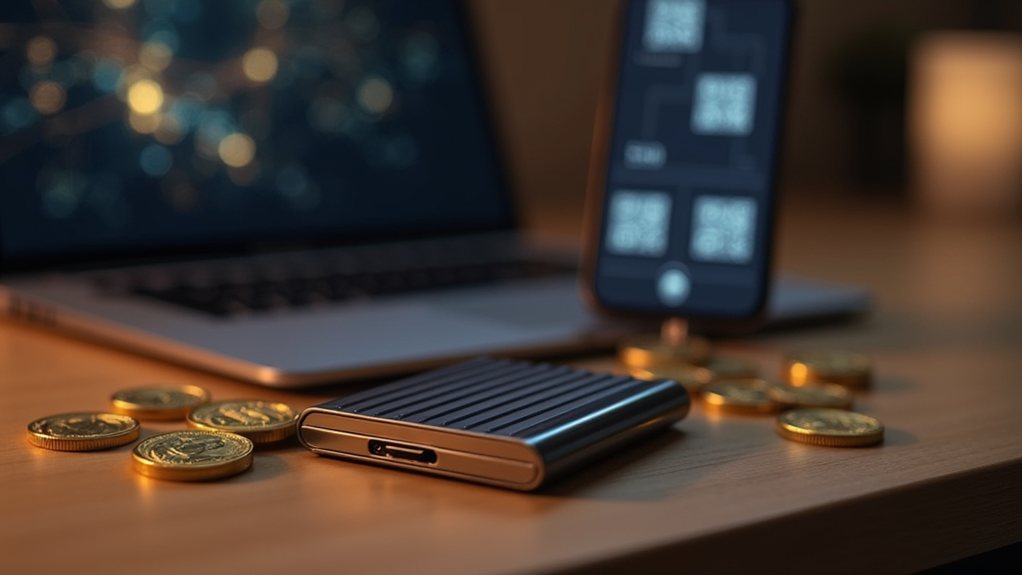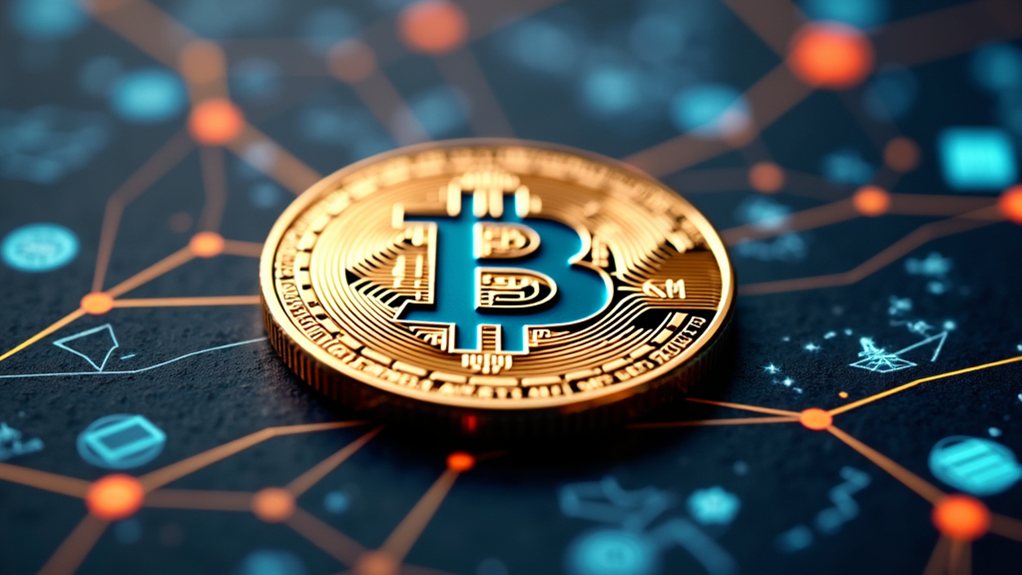A decentralized wallet gives users full control of their cryptocurrency without banks or companies. Unlike traditional financial services, these wallets let owners keep their private keys, enhancing security and privacy. They connect directly to blockchain networks, allowing peer-to-peer transactions without third-party permission. Options include internet-connected "hot wallets" like MetaMask and offline "cold wallets" such as Ledger. Users must safeguard their recovery phrase to maintain access to their digital assets.

What gives cryptocurrency users true control over their digital money? The answer is decentralized wallets. These special tools let people store and manage their cryptocurrencies without relying on banks or other companies. When someone uses a decentralized wallet, they own and control the private keys needed to access their digital assets.
Decentralized wallets work directly with blockchain technology. They don't need middlemen to help users send or receive crypto. This peer-to-peer approach means transactions happen directly between users. The wallet itself doesn't hold the money – it provides access to funds that are recorded on the blockchain. These wallets are also known as non-custodial wallets in the crypto community.
The wallet is merely a key to your wealth, which exists solely on the blockchain's distributed ledger.
Security is a major benefit of decentralized wallets. Users keep their private keys themselves, which reduces the risk of hackers attacking a central server and stealing many people's funds at once. Modern decentralized wallets enhance protection through smart contracts that require multiple signatures for transaction approval. Many wallets offer extra protection like encryption, biometric logins (like fingerprints), and even hardware security options.
There are several types of decentralized wallets. Hot wallets, like MetaMask and Trust Wallet, connect to the internet and are convenient for everyday use. Cold wallets, such as Ledger and Trezor, stay offline for better security. Users can also choose mobile wallets for their phones, desktop wallets for computers, or even paper wallets that are physical printouts of their keys. The primary advantage of cold wallets is their enhanced protection against online threats since they store private keys in offline hardware devices.
Compared to centralized options (like those on crypto exchanges), decentralized wallets offer more privacy. They don't require KYC (Know Your Customer) information like ID verification. They also allow direct access to decentralized applications (dApps) and DeFi (Decentralized Finance) services. Users don't need permission from any company to use their own money.
Most decentralized wallets support multiple cryptocurrencies. This means users can manage Bitcoin, Ethereum, and many other digital assets in one place. The wallets translate complex blockchain addresses into a simpler interface that's easier to use.
When setting up a decentralized wallet, users typically receive a recovery phrase (also called a seed phrase or mnemonic). This list of random words helps recover access if a device is lost or damaged. Keeping this phrase safe is vital – anyone who finds it can access the associated crypto.
Decentralized wallets embody the core principles that inspired cryptocurrency in the first place: independence from central authorities, personal financial control, and secured ownership through cryptography. As more people grow interested in digital assets, these wallets provide a gateway to the blockchain world that doesn't sacrifice user autonomy or privacy for convenience.
Frequently Asked Questions
How Do I Recover a Decentralized Wallet if I Forget My Password?
Recovering a forgotten password for a decentralized wallet typically requires a recovery phrase. This is a series of 12-24 words created when setting up the wallet.
Users can enter these words in exact order to regain access. Without this phrase, recovery options are extremely limited. Some wallets offer backup files as an alternative method.
Support teams can't reset passwords since they don't control users' private keys.
Can Decentralized Wallets Be Hacked or Compromised?
Decentralized wallets can be compromised in several ways.
Hackers often use phishing scams to steal private keys or seed phrases. Malware on user devices can capture sensitive information. Social engineering tricks people into revealing security details. Software vulnerabilities in wallets pose risks too.
Major incidents include the 2016 DAO hack ($60 million stolen) and the 2021 Poly Network attack ($610 million temporarily stolen).
The security of the wallet largely depends on user practices.
What Fees Are Associated With Using Decentralized Wallets?
Decentralized wallets typically don't charge usage fees, but users still face other costs.
Network transaction fees are required when sending crypto, varying by blockchain congestion. Some wallets may add small convenience fees for built-in exchange services.
Hardware wallets have one-time purchase costs. Premium wallets might charge for advanced features.
Most basic wallet functions remain free, though moving assets between platforms always incurs network fees.
How Do Decentralized Wallets Handle Multiple Cryptocurrencies Simultaneously?
Decentralized wallets handle multiple cryptocurrencies through multi-chain support technology.
They use a single seed phrase to generate different private keys for each blockchain. Users can view all their assets in one dashboard while the wallet connects to various networks behind the scenes.
Cross-chain protocols allow for transfers between different cryptocurrencies. This technology lets people manage Bitcoin, Ethereum, and other coins without switching between different apps.
Are Decentralized Wallets Compatible With Defi Platforms and NFT Marketplaces?
Decentralized wallets are fully compatible with DeFi platforms and NFT marketplaces. They connect seamlessly with major networks like Ethereum and Binance Smart Chain.
Users can interact directly with smart contracts, swap tokens, and participate in yield farming.
For NFTs, these wallets store digital collectibles and connect to popular marketplaces such as OpenSea and Rarible. They enable buying, selling, and even minting new NFTs directly from the wallet.










